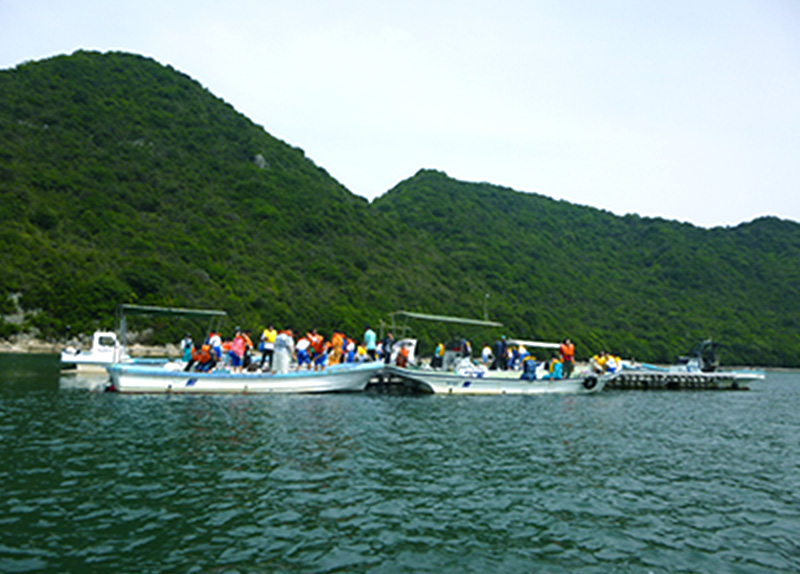Environmental Education Research
I have been conducting research on environmental education including evaluation of the impacts of environmental education programs on individuals as well as communities. By conducting social science research (e.g., surveys on and interviews with participants and other stakeholders, observation of the reaction of participants) and collaborating with practitioners of environmental education programs, I aim to reveal the short- and long-term effects of the program and to provide suggestions for improving it. I use various evaluation tools (e.g., logic model and theory of change) and approaches (e.g., 360° feedback and action research) to gain data that are scientifically significant and practically useful.
To conduct meaningful evaluations, I believe that a relationship of trust should be established between those who evaluate and those who are evaluated. An evaluator should understand the motivation and passion of practitioners regarding their programs, whereas practitioners should also clarify their objectives through the evaluation. Personally, evaluating environmental education programs is a process of collaboration between the evaluator and practitioner to determine the best design and implementation of an effective program.
I have been working with colleagues in Japan and from around the world to advance environmental education research in Asia. In addition, I have been collaborating with researchers across fields to develop new research methods/tools for evaluating environmental education programs.

Marine conservation education program for junior high school students at coastal areas in Japan
Example of a chapter I wrote in a book
Example of papers on environmental education evaluation research
Evaluation of marine conservation education program
- Sakurai, R., & Uehara, T. 2020. Effectiveness of a marine conservation education program in Okayama, Japan. Conservation Science and Practice.
- Sakurai, R. et al. 2019. Students’ perceptions of a marine education program at a junior high school in Japan with a specific focus on Satoumi. Environmental Education Research 25(2): 222-237.
![Sakurai Ryo Laboratory [R-Lab]](https://sakurairyo.net/wordpress/wp-content/themes/sakurairyo/resources/images/en/common/header-logo.png)
![Sakurai Ryo Laboratory [R-Lab]](https://sakurairyo.net/wordpress/wp-content/themes/sakurairyo/resources/images/en/common/header-logo-sp.png)

